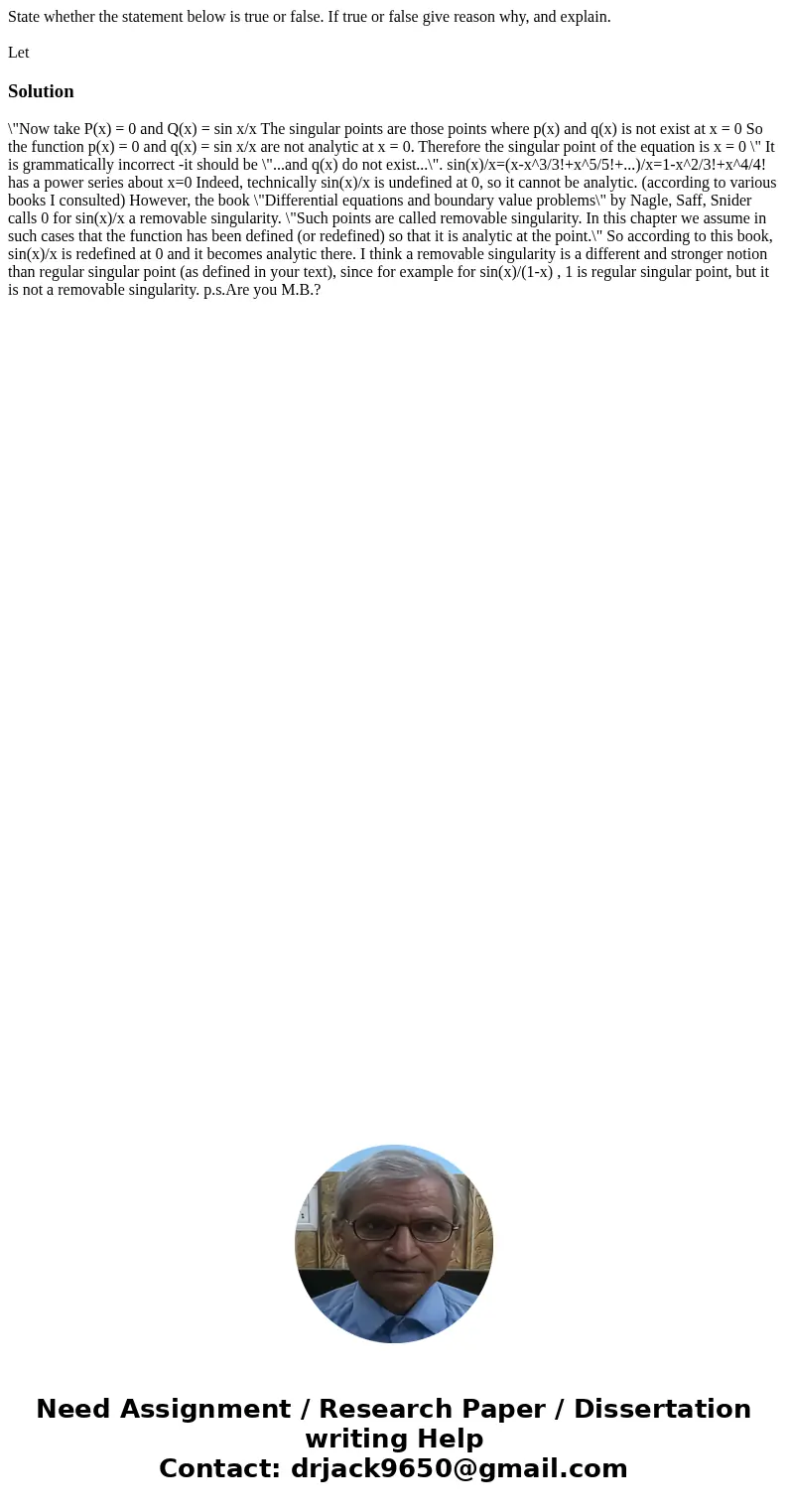State whether the statement below is true or false If true o
State whether the statement below is true or false. If true or false give reason why, and explain.
Let
Let
Solution
\"Now take P(x) = 0 and Q(x) = sin x/x The singular points are those points where p(x) and q(x) is not exist at x = 0 So the function p(x) = 0 and q(x) = sin x/x are not analytic at x = 0. Therefore the singular point of the equation is x = 0 \" It is grammatically incorrect -it should be \"...and q(x) do not exist...\". sin(x)/x=(x-x^3/3!+x^5/5!+...)/x=1-x^2/3!+x^4/4! has a power series about x=0 Indeed, technically sin(x)/x is undefined at 0, so it cannot be analytic. (according to various books I consulted) However, the book \"Differential equations and boundary value problems\" by Nagle, Saff, Snider calls 0 for sin(x)/x a removable singularity. \"Such points are called removable singularity. In this chapter we assume in such cases that the function has been defined (or redefined) so that it is analytic at the point.\" So according to this book, sin(x)/x is redefined at 0 and it becomes analytic there. I think a removable singularity is a different and stronger notion than regular singular point (as defined in your text), since for example for sin(x)/(1-x) , 1 is regular singular point, but it is not a removable singularity. p.s.Are you M.B.?
 Homework Sourse
Homework Sourse